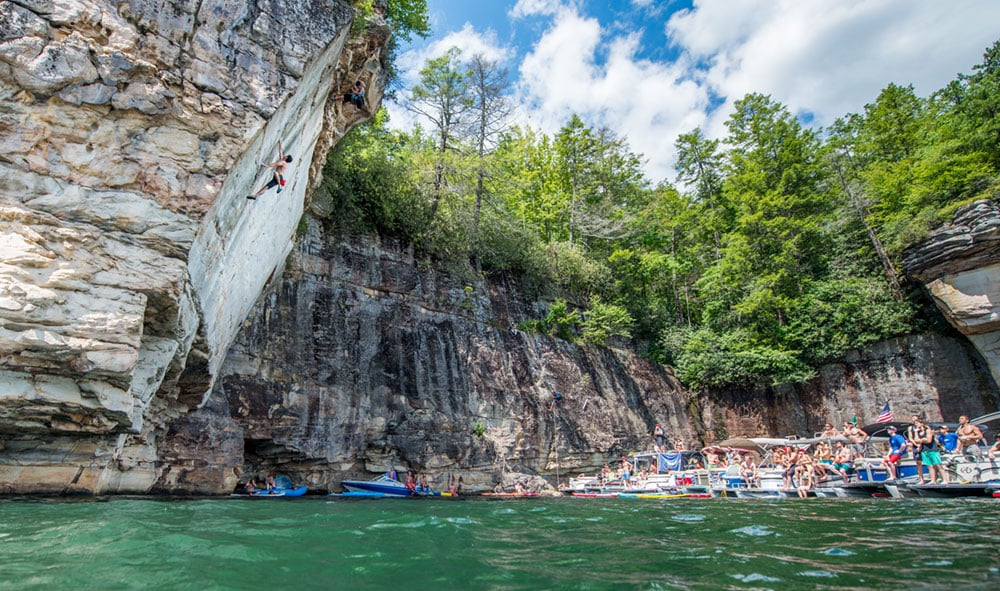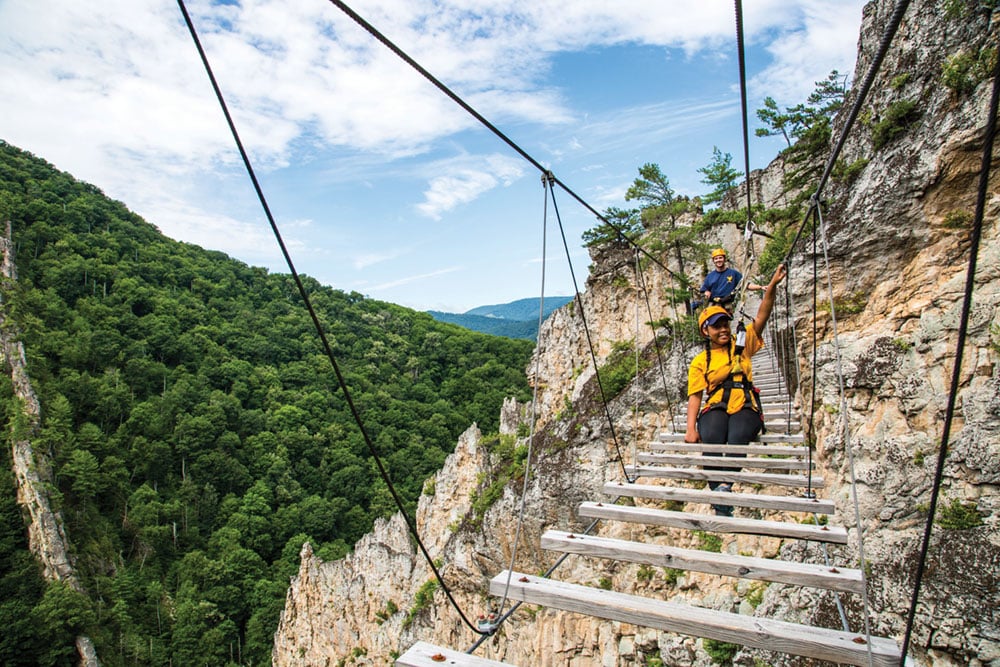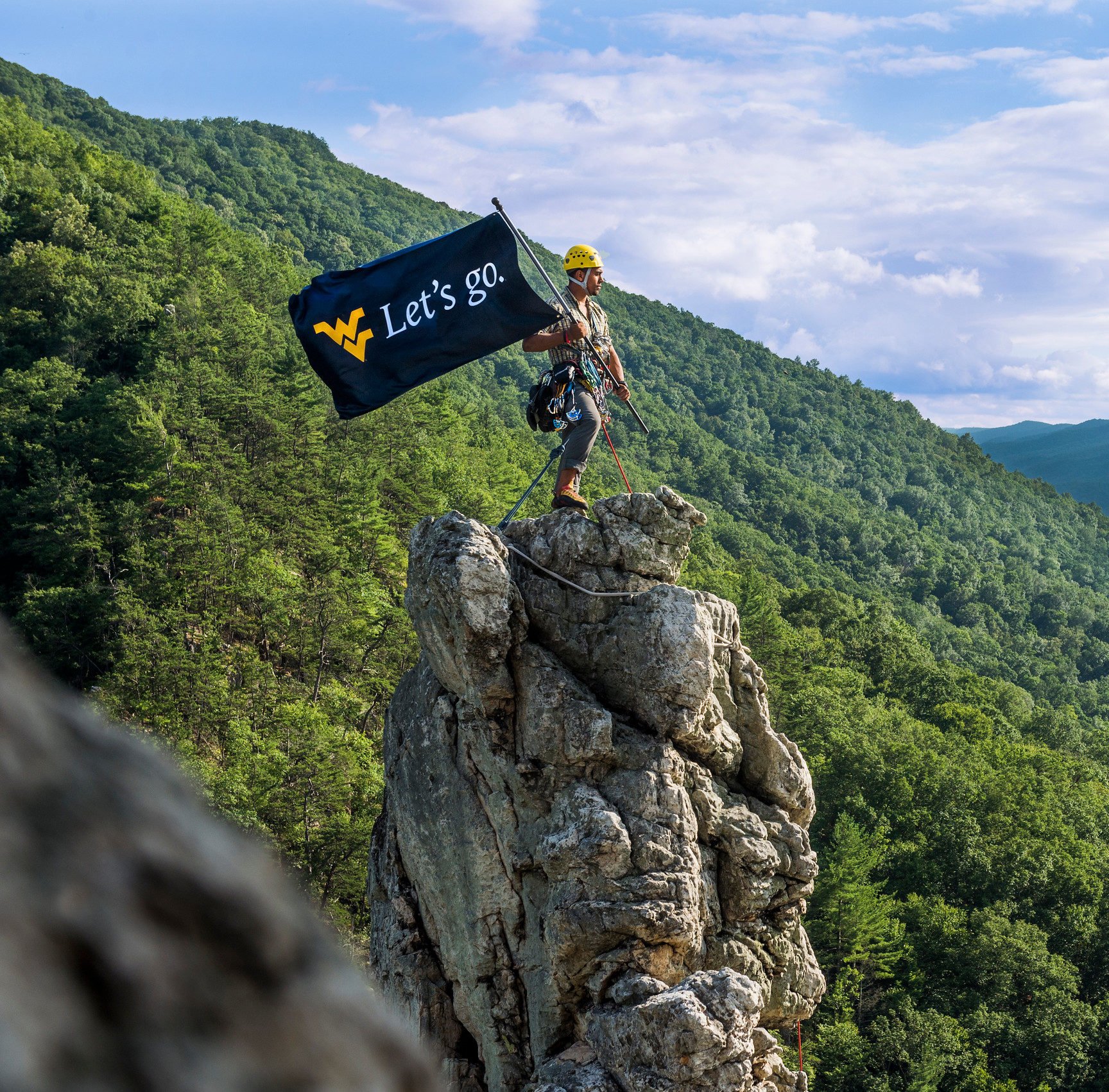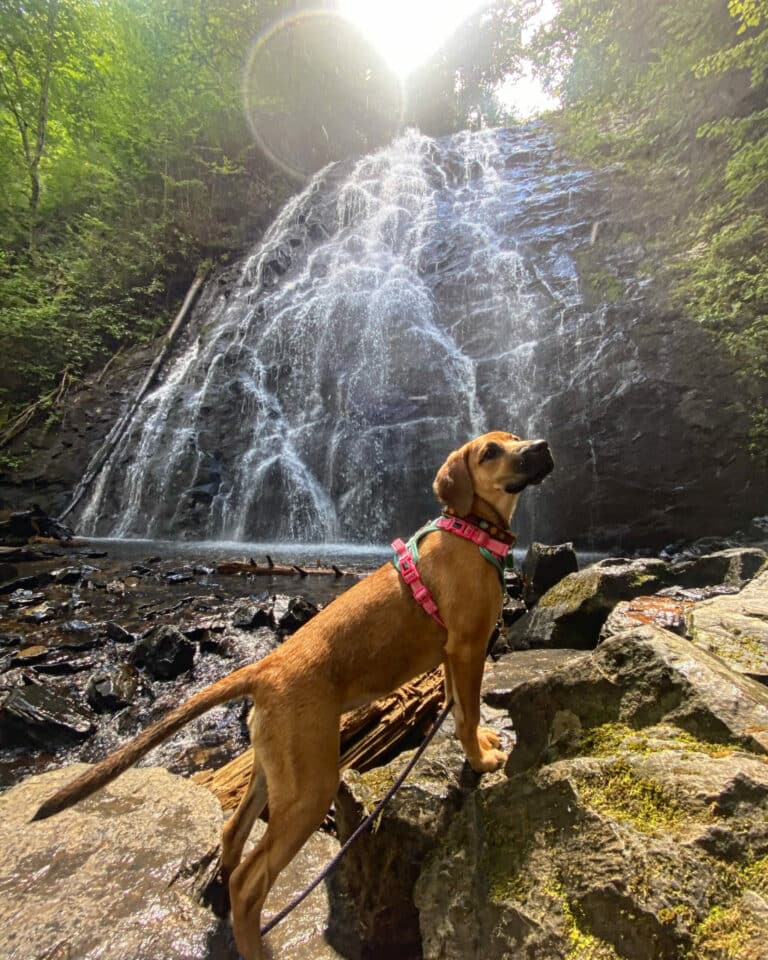Earlier this year Blue Ridge Outdoors asked readers to help pick the region’s top adventure colleges. In our annual contest we placed 32 schools against each other in a bracket-style competition and received a flood of online voting from fans of their favorite schools. The colleges were chosen based on academic curricula, outdoor clubs, commitment to environmental initiatives, and, of course, access to adventure. Ultimately two winners—West Virginia University and WVU Institute of Technology—tied for the top prize. Read on to learn about what makes these two Mountain State schools perfect for students ready to explore the outdoors.

West Virginia University
Morgantown, W.Va.
- Undergraduate Enrollment: 26,269 students
- Relevant Majors/Minors: Sports and Adventure Media; Wildlife and Fisheries Resources; Recreation, Parks, and Tourism Resources
- Recreation Highlights: 500 established climbing routes within a 10-mile radius; 605 miles of whitewater and seven downhill and cross-country ski areas within an hour and a half drive; Monongahela River; Coopers Rock State Forest
Although Issabella Colegrande has lived in Morgantown for most of her life, she said it took attending WVU to truly appreciate all that was around her. She and a friend signed up for one of Adventure WV’s First Year Trips as a way to meet people before starting classes. “I absolutely loved it,” Colegrande said. “That trip actually helped me realize some of the true beauty of the state because it took me to different parts I hadn’t traveled to before.” An initial favorite was Seneca Rocks, due to its secluded location.
Now the rising junior is a trip leader herself, sharing her love of the area’s outdoor spaces and welcoming other students to the university. Outside of her engineering and Spanish classes, Colegrande also works in the university’s Outdoor Education Center, leading team building and day programs.
The debrief at the end of the activity demonstrates the programming’s importance as students share reflections on the experience. “You get comments sometimes that really make you feel good about what you’re doing and push you to keep doing this because you know you really are having an effect on people,” Colegrande said.
In addition to an on-campus climbing wall and aerial adventure course, the school offers a number of majors for the outdoor-minded student, including a new sustainable trails curriculum as an undergraduate minor and graduate certificate program launching this fall.
The university’s reach also extends beyond the students on campus. The Brad and Alys Smith Outdoor Economic Development Collaborative at WVU is an emerging program working to promote the state’s outdoor recreation opportunities. “What we’re trying to do is leverage institutional, intellectual, social capital, and outdoor assets to transform the state,” said Danny Twilley, assistant dean of the collaborative. “We’re working on building and developing high quality outdoor recreation infrastructure and elevating the state in that area.”
Initiatives include Science Adventure School, outdoor programming for middle schoolers in the state, and Ascend WV, a remote worker program designed to bring working professionals to the area. “All of these things are focusing on community and belongingness,” said Greg Corio, assistant vice president of the collaborative.

WVU Institute of Technology
Beckley, W.Va.
- Undergraduate Enrollment: 1,645 students
- Relevant Majors/Minors: Adventure Recreation Management
- Recreation Highlights: 3,500 climbing routes, 500 bouldering spots, and 890 miles of whitewater within an hour’s drive; New River Gorge National Park; Little Beaver State Park
Despite being a long way from his home in Georgia, Larry Orsini found his dream school in WVU Tech, when he learned about the college’s adventure recreation management program and the accessibility to the outdoors in the area. The rising sophomore was an avid indoor climber in high school but never had the opportunity to explore real rock. That all changed with his first trip to the nearby New River Gorge. “Because I love indoor climbing, I thought it probably would translate,” Orsini said. “Now I’ve been spoiled with West Virginia climbing. I’ve never lived in a place where you can bike down the road to go rock climbing. It’s never been that close for me.”
As an adventure recreation management major, Orsini said it’s not a cookie cutter program that treats every student the same. “They try to really work with you on what you want to do,” he said. In addition to skills and guiding classes like climbing, mountain biking, and whitewater paddling, students take classes in legal and ethical issues and are encouraged to take business and management classes outside of the program.
“We are grounded in management, and adventure recreation is the vehicle to get there,” said Dr. T. Grant Lewis, director and teaching assistant professor of adventure recreation management. “We are also preparing our students so if they decide that adventure recreation is not what they want to do, they still have the skill sets to be able to be managers in other capacities.”
Although the program is less than five years old, Lewis says he sees a lot of potential as more people turn to the outdoors in their down time. “What we’ve experienced for the last year with COVID is that more people want to be outside because that’s where we know we can be with our family and friends,” Lewis said. “I think we’ll continue to see growth in this area, particularly when we look at the state of West Virginia, but even on the East Coast.”
With the New River Gorge National Park just minutes from campus, students don’t have to be on the major track to take advantage of all the area has to offer. “Adventure is in the eye of the beholder,” Lewis said. “It doesn’t mean you have to try to do 5.10-5.12 climbs or constantly be running class IV and V rapids.”
Runners Up
Appalachian State University (Boone, N.C.)
Lees-McRae College (Banner Elk, N.C.)
Special thanks to NROCKS Outdoor Adventures for sponsoring the 2021 Top Adventure College Contest.
Cover photo: Climbing Seneca Rocks. Photo courtesy of West Virginia University







